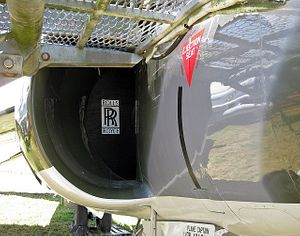Tuesday, Rolls-Royce plc agreed to pay over $800 million to authorities in the United Kingdom, Brazil, and the United States in order to avoid prosecution for corruption in those countries. The multinational company is a distributor of power systems for the aerospace, defense, marine and energy sectors.
The global resolution comes after years of investigations which picked at the interlinking threads of business and the political connections made to secure contracts around the world.
In the United States, Rolls-Royce will pay a $170 million criminal penalty and entered into what’s known as a deferred prosecution agreement (DPA). A DPA typically entails the granting of amnesty in exchange for the fulfillment of specific requirements. In this case, the agreement resolves a pending Foreign Corrupt Practices Act (FCPA) case against the company but stipulates that individuals may still be prosecuted. Rolls-Royce will pay a fine and agreed cooperate with further investigations
The Justice Department’s release about the agreement detailed some of the corruption to which Rolls-Royce has admitted to in pursuing its business operations in Thailand, Brazil, Kazakhstan, Azerbaijan, Angola, and Iraq. Last October, a joint investigation by the Guardian and BBC Panorama revealed 12 countries where the company had hired “commercial agents” to help score contracts.
The details on Kazakhstan are vague but fit into a familiar, and regional, pattern. According to the Justice Department between 2009 and 2012, Rolls-Royce paid about $5.4 million to several advisers, “knowing that at least a portion of the commission payments would be used to bribe foreign officials with influence over a joint venture owned and controlled by the Kazakh and Chinese governments that was developing a gas pipeline between the countries.”
The pipeline likely being referenced is either the Kazakhstan-China pipeline — completed in 2009 — or the Central Asia-China pipeline which also runs across Kazakhstan, but connects to Turkmenistan via Uzbekistan as well. The Kazakh portion of the Central Asia-China pipeline was inaugurated in December 2009 and the next year China and Kazakhstan agreed on a branch line connecting to Western Kazakhstan. The second line was completed in 2010, a third in 2012 and fourth is in progress, though delayed.
The Justice Department release also says that in 2012, Rolls-Royce hired, “a local Kazakh distributor, knowing it was beneficially owned by a high-ranking Kazakh government official with decision-making authority over Rolls-Royce’s ability to continue operating in the Kazakh market.”
“During this time, the state-owned joint venture awarded multiple contracts to Rolls-Royce,” the statement says.
According to the Guardian/BBC Panorama investigation Unaoil, a Morocco-based company exposed in what The Huffington Post and The Age called the “world’s biggest bribe scandal” last year represented Rolls-Royce in Kazakhstan from 2008 onward, “attempting to secure a contract to contribute to the China-Kazakhstan pipeline.”
What a tangled web international businesses weave.
Chief Andrew Weissmann of the Fraud Section of the Justice Department’s Criminal Division said that “For more than a decade, Rolls-Royce repeatedly resorted to bribes to secure contracts and get a competitive edge in countries throughout the world.” He went on to note that a crime of such global scale requires a coordinated global response.
Assistant Director Stephen Richardson of the FBI’s Criminal Investigative Division said, “No company is above the law. This resolution will stand as a warning to big and small companies all across the world that the FBI will not tolerate the foreign corruption that threatens our fair and competitive markets.”
But anti-corruption activists are less convinced. Susan Hawley, the policy director of Corruption Watch, told the Guardian that the British settlement with Rolls-Royce was “proof the UK is not willing to prosecute a large, politically connected company.” Anti-corruption hawks will be watching to see if any of the investigating authorities pursue individual criminal cases.
Warren East, the chief executive office of Rolls-Royce Holdings, in the company’s statement regarding the agreement was contrite, saying that the “behaviour uncovered in the course of the investigations” was “unworthy of everything which Rolls-Royce stands for and that our people, customers, investors and partners rightly expect from us.”
East said, “The past practices that have been uncovered do not reflect the manner in which Rolls-Royce does business today.”
Business in Central Asia however, operates as it always has. This particular scandal shares a formula — bribes for access — with the network of telecom scandals centered on Uzbekistan. It also further adds credence to the arguments put forth by John Heathershaw and Alexander Cooley that far from being an isolated economic backwater, Central Asia is snugly tied into the global economy via offshoring vehicles and international financial networks.
Correction: This piece has been updated, a previous version conflated Rolls-Royce plc (Rolls-Royce Holdings) with Rolls-Royce Motor Cars (RRMC). The two are separate entities, the former the subject of the investigations mentioned in this article and the latter uninvolved.

































